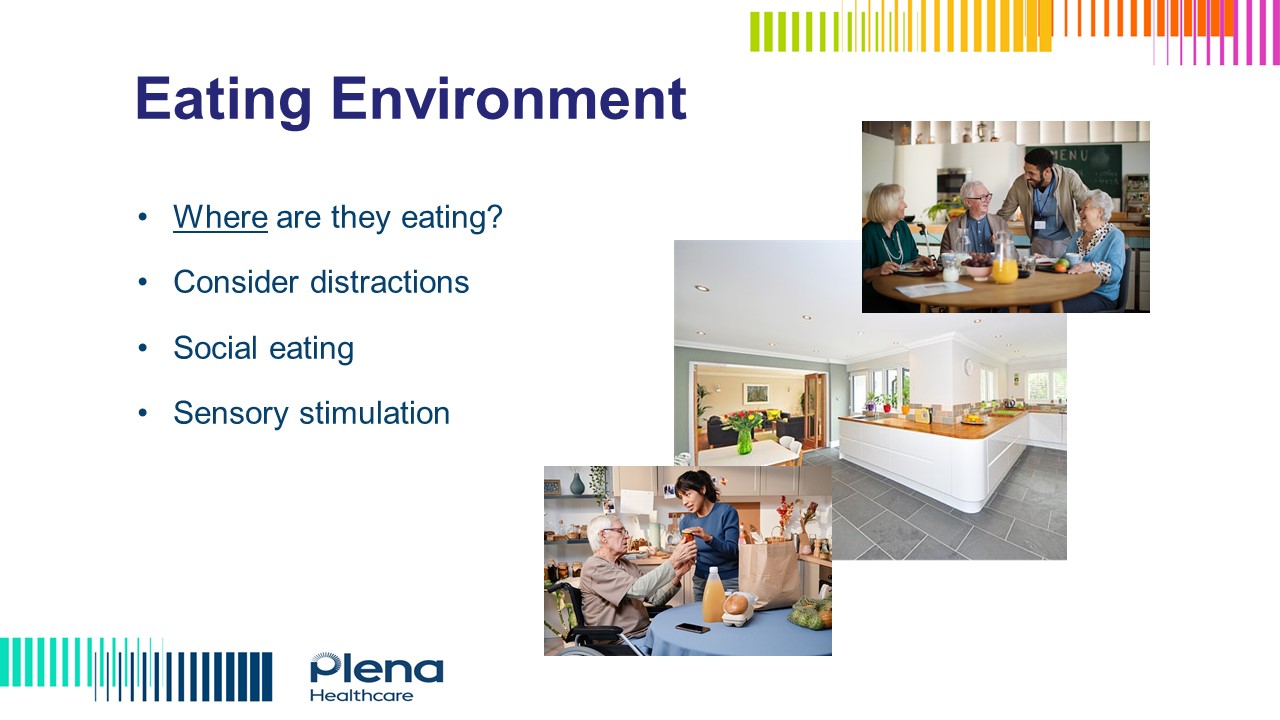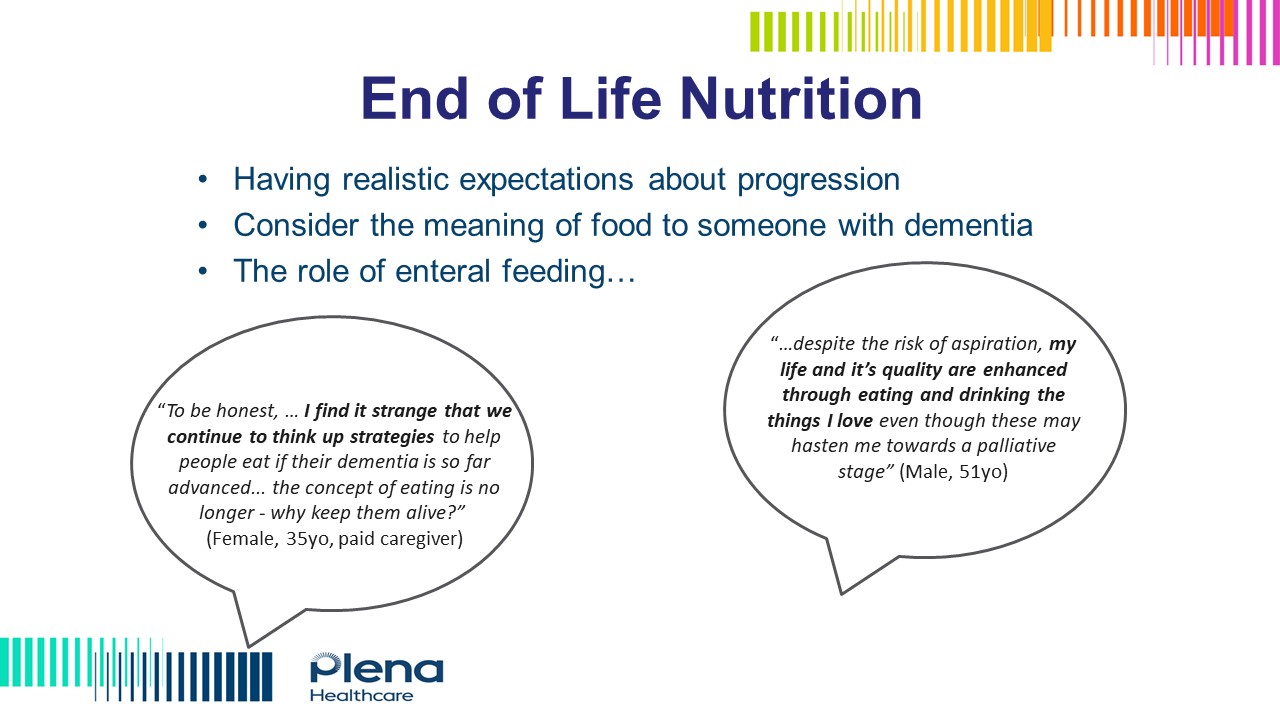Nutrition in people with advanced dementia- Part 2: Strategies for people with dementia & caregivers
 Anthea Talliopoulos, APD
Anthea Talliopoulos, APD
Dementia can significantly effect eating habits, negatively impacting health outcomes, and increasing the risk of malnutrition. With more than half of people in residential aged care facilities having dementia and 1.5 million people caring for people with dementia nationwide, it is crucial that the nutritional wellbeing of people living with dementia is supported and advice tailored to their needs.
In considering the main underlying themes impacting on eating habits in people living with dementia, Accredited Practising Dietitian Isabelle Goodwin provides a thorough overview with practical tips and strategies identified from her research and study involvement on dementia. These themes included personalised food modifications (including texture modification, desired foods, meals size and fortification), meal choice, meal presentation, the eating environment, eating assistance, and end of life nutrition. When considering meal choice, it is encouraged to optimise the eating timeframe with as much flexbility as possible, with foods/snacks (including nutritional supplements of varying flavours where indicated) being available outside of mealtimes. In encouraging oral intake, meal presentation is key through ensuring, wherever possible, that meal components are distinct to enable patients to more cleary identify what foods are on the plate. Considering the physical characterstics of the dining environment are also crucial, and using coloured crockery may help to minismise confusion at mealtimes. When end of life nutrition is observed, focusing on food enjoyment and quality of life may be a main focus, as it as important that an individualised and patient-cented approach is taken.
In overcoming the barriers which effect eating habits in individuals effected by dementia, communication is paramount; working alongside the families/ caregivers can provide valuable insight into the individual’s past and present eating habits. Educating staff, advocating for nutrition care, and having clear communication with the multidisciplinary team are all key communication strategies which can have a profound impact on patient outcomes.
Summary:
- Dementia effects more than half of residential aged care residents and can significantly effect eating habits, negatively impact health outcomes, and increase the risk of malnutrition.
- There are six underlying themes observed is Isabelle’s research of dementia including personalised food modifications, meal choice, meal presentation, the eating environment, eating assistance, and end of life nutrition. The feeding environment can have a profound impact on foods consumed and attention should be paid to the physical characteristics of a dining environment, such as lighting, ventilation, seating position and noise levels.
- Plating food as individual food components is also more likely to mitigate confusion at mealtimes and optimise oral intake.
- In working with dementia patients, clear communication is paramount, and this includes advocating for nutrition care amongst the multidisciplinary team and onsite staff in care facilities, as well as working alongside the family/ caregivers of people living with dementia.
Isabelle Goodwin, APD currently works in the Tasmanian community as a residential aged care dietitian and also in private practice. With a strong interest in mental health and associated conditions, Isabelle completed further research into nutrition in dementia care in 2020 and published this research in 2022. Isabelle is also a credentialed eating disorder clinician (CEDC) and supports undergraduate health students at The University of Tasmania through tutoring and marking.
To register for the presentation and associated documents including the assessment quiz click here

